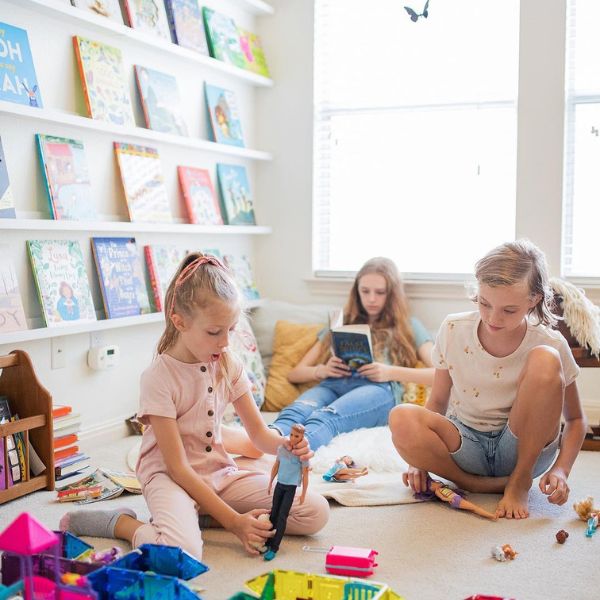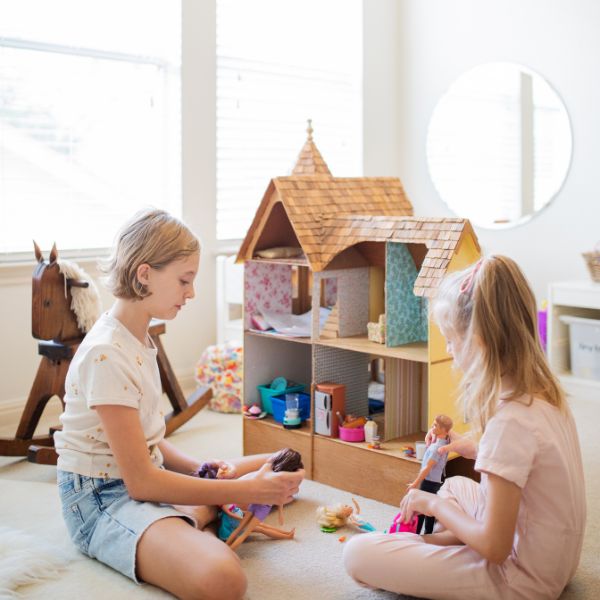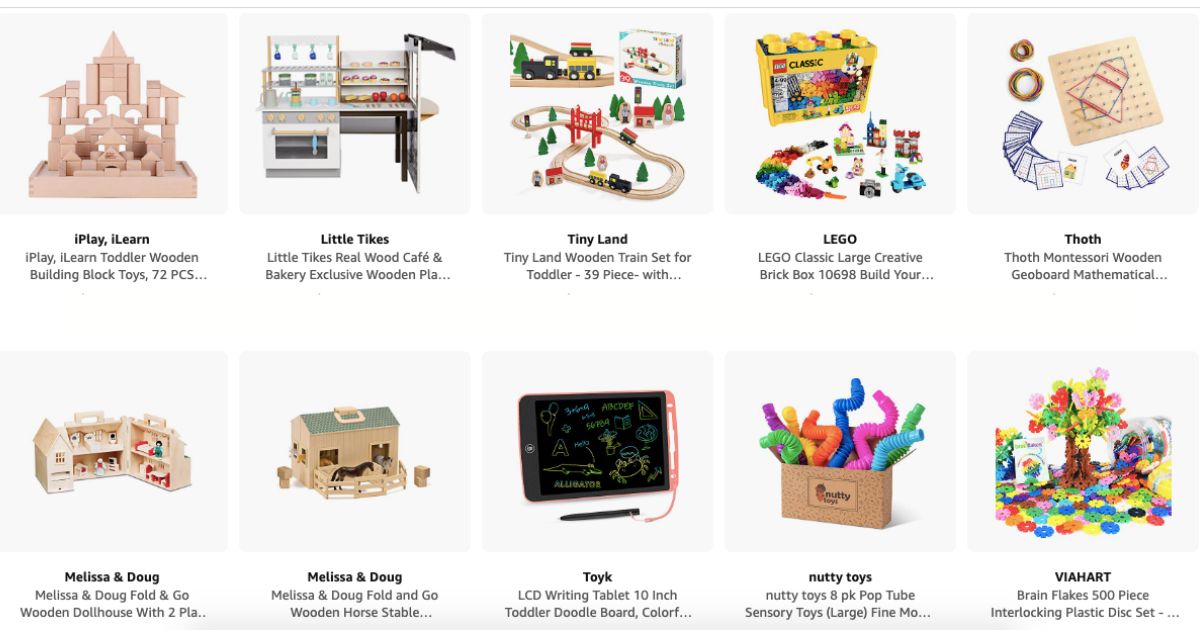Parents can help their children deepen their imaginative and independent play when they focus on skills taught through play therapy.

With summer right around the corner, you might be worried about keeping your kids entertained.
How will you get anything done with constant pleas of “play with me?!”
A Parent’s Role In Play
Friends, I’m here to tell you that you should not feel guilty for not constantly playing with your child.
Play is a child’s work. It’s their job, not yours.
You are not responsible for creating fun playtime for your kids.
Let me be clear: I am not saying ‘never play with your child’, but I want you to understand that your role is not to be a constant playmate.
You are allowed to set boundaries. You can and should play when you want to, not when you feel you HAVE to.
But when they need help in learning how to prolong and deepen their imaginative play, then that’s your job to step in and teach them.
I’ll show you how.
How to Teach the Skill of Independent Play
I love this quote from Janet Lansbury:
“When you DO play, do less and give MORE attention.”
Interactive play comes from a theory by Sheila Eyberg.
What she discovered is that if you just play with your child for 5-20 minutes per day, and allow your child to direct the play, it develops a more warm and loving relationship between the parent and child. It also does an incredibly good job of decreasing disruptive behavior and noncompliance.
So let’s talk about how you can increase their attention span and help them deepen their independent play with some simple play therapy.
Don’t
Here are 3 things to avoid when playing with your child:
- criticism
- commands
- questions
These things seem innocent, right?
But, remember the goal: self-directed play. That means we need to remove all adult meaning and structure from their play.
When you give criticism to a child, it lowers their self-esteem and their ability to play on their own. This sounds like, “Oh don’t do that! This is a much better way to build it.” We need our children to gain problem-solving and creativity skills, not be seeking parental approval.
Avoiding commands allows the child to lead and the play is not focused on obedience or compliance.
The same goes for asking questions – it focuses on conversation and adult expectations, rather than just following that child in their play.
Do
Now, here are the things that you should DO during interactive play with your child:
- Offer positive reinforcement
- Reflectively talk about what they are doing
- Imitate what they are doing
- Describe what they are doing
- Show enthusiasm for what they are doing
Want to see these skills in action? Check out my reel: How to teach child-centered play
Play is a Child’s University
Remember, it is their job to play and your job to support them in that work and provide the above scaffolding when needed.
Independent, self-directed play is a skill that can take time to develop, just like any other.
I hope you will use the above guidelines to help them gain skills that will provide hours and hours of play.
If you want to learn more about encouraging and supporting self-directed play, you might also like these other resources.


